Do you often face inventory shortages or excess stock that disrupt your business operations? With a growing number of demand forecasting tools available, choosing the right one to accurately predict demand and optimize inventory can be challenging.
The importance of a demand forecasting tool is highlighted in McKinsey’s 2026 State of Consumer report. The report emphasizes that enhancing forecasting accuracy and inventory agility is essential for businesses to adapt to the increasing unpredictability of customer expectations and remain competitive in a rapidly evolving market.
Demand forecasting tools powered by AI and advanced analytics offer businesses the ability to anticipate future demand more precisely. However, selecting the best tool tailored to your specific needs is essential to fully capitalize on these technological advantages.
Ready to explore demand forecasting tools that can revolutionize your inventory management? This guide highlights the top solutions of 2026 aimed at reducing waste, increasing profitability, and keeping you competitive.
Key Takeaways
|
What is Demand Forecasting?
Demand forecasting estimates future product demand, helping businesses efficiently plan and allocate resources. This process uses historical sales data, market trends, and other influencing factors to provide valuable insights into what to expect in upcoming periods.
It involves analyzing historical sales data, understanding market trends, and considering factors that influence demand, such as economic conditions, consumer behavior, and competitor activity, using demand sensing to improve forecast accuracy and help teams respond faster to shifts.
With the right demand forecasting tools, companies can optimize inventory management, streamline production, and set competitive prices. This proactive approach not only maximizes profitability but also improves overall customer satisfaction.
Why are Demand Forecasting Tools Important?
Accurate demand forecasting plays a critical role in optimizing inventory levels, boosting supply chain resilience, and reducing carrying costs. With the right tools, businesses can avoid stockouts and ensure high-demand products are always available.
Forecasting tools also enable companies to plan production more effectively. By predicting demand, businesses can meet customer needs while minimizing waste and inefficiencies, ensuring smoother operations.
These tools help businesses prepare for potential disruptions, such as supply chain issues, changes in consumer behavior, or even natural disasters. They also provide opportunities to identify new market trends, leading to the development of products that cater to evolving customer preferences.
When used correctly, demand forecasting tools drive smarter decision-making, especially in production, inventory management, and pricing. Data-driven decisions help businesses improve overall performance and enhance long-term sustainability.
Key benefits of demand forecasting tools:
- Improved decision-making: Reliable forecasts enable businesses to align production and inventory with demand, enhancing overall decision-making.
- Reduced costs: Accurate demand predictions help optimize operations, minimizing overproduction and cutting logistics costs.
- Enhanced customer satisfaction: Businesses can meet customer demand consistently, leading to higher satisfaction and loyalty.
- Increased profitability: Smarter forecasts improve operations, reduce costs, and ultimately boost profits.
Additionally, demand forecasting tools help businesses forecast inventory needs using real-time data, historical trends, and external factors. This ensures smarter inventory decisions and prevents overstocking of slow-moving products.
Accurate forecasting improves operational efficiency by reducing human error and minimizing manual work. It’s especially crucial for businesses with multiple warehouses or sales channels, as it enables better supply chain agility.
How do Demand Forecasting Tools Work?

Demand forecasting software functions by analyzing historical data, market trends, seasonality, and external factors to identify patterns. These insights are then used to make accurate predictions about future demand. The integration of machine learning and artificial intelligence further refines forecasts as new data becomes available.
The software accounts for variables like economic indicators, customer behavior, social trends, and even weather patterns. These factors are processed using statistical models to generate forecasts with different levels of detail, whether for individual SKUs, product categories, or entire business operations.
Step-by-step process of demand forecasting tools:
- Data collection: The software gathers and analyzes historical sales data, market trends, and external factors, including weather and economic conditions.
- Pattern recognition: Machine learning algorithms identify trends, correlations, and seasonal patterns in the collected data.
- Forecast generation: Based on recognized patterns, the software generates demand forecasts for different business areas, from specific products to broader categories.
- Refinement: As new data becomes available, the system updates its forecasts and improves accuracy using AI, ensuring real-time adjustments.
- Granular insights: Finally, the forecasts can be broken down to the stock-keeping unit (SKU) level, product categories, or overall business operations, offering the flexibility needed for detailed decision-making.
7 Best Demand Forecasting Tools Software
Inventory forecasting can be tricky, as it involves managing several variables to ensure accurate predictions. While it’s challenging, using the right tools can make it possible. Here are the top 7 demand forecasting tools in Singapore designed to enhance inventory management and forecasting accuracy:
1. HashMicro Forecasting Software
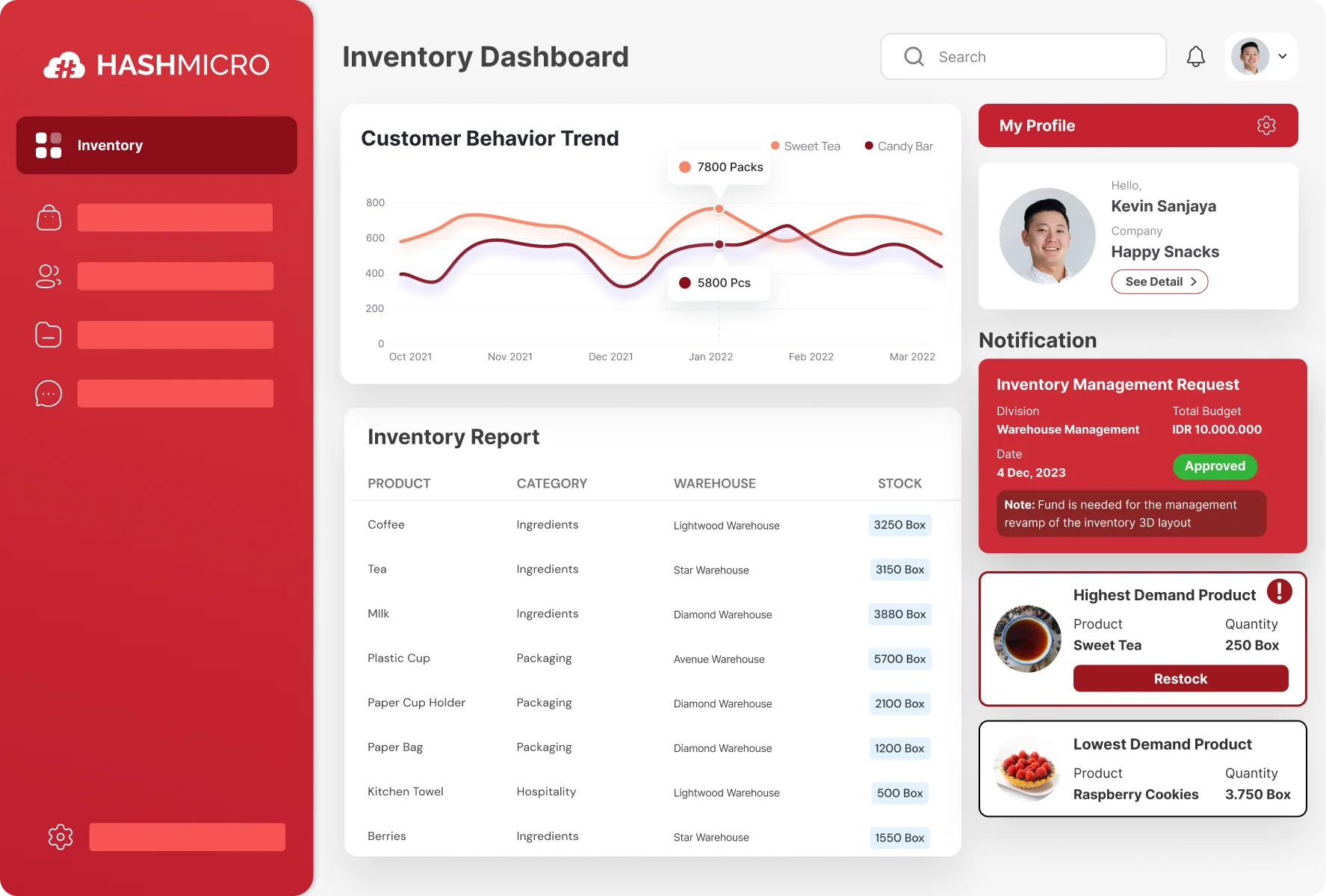
An inventory system, such as Hashmicro’s Inventory Software, is an excellent integration method. Inventory forecasting is one of the many requirements this system is specifically made to accommodate. It also features a wide range of scalability, an intuitive interface, and the ability to be customised to meet specific business requirements.
HashMicro offers compliance, dependable customer service, and a dedicated local team for companies seeking reliable inventory forecasting software. Try our free demo to see how HashMicro Inventory Software compares to other alternatives.
Here are the key features of HashMicro’s Inventory Forecasting Software :
- Fast-moving and slow-moving stocks analysis: Facilitates inventory forecasting and strategic planning by assisting in identifying warehouse products with high and low rotation rates.
- Stock Forecasting: This function forecasts future commodity demand by examining past sales data, seasonal patterns, and additional variables.
- Run rate reordering rules: Based on the current stock demand, the system generates run rate information, which is the average daily release of items. You may obtain historical ordering data by implementing this function, which is helpful for inventory forecasting.
- Purchase budget module: Determine the budget and limit for each purchase. The HM system can provide restrictions if the purchase exceeds the budget/limit.
- Barcode and RFID integration: Simplifies inventory tracking and checkout with precise barcode and RFID scanning.
| Pros | Cons |
|---|---|
|
|
Businesses can also leverage the CTC Grant, which covers up to 70% of the implementation costs, to support the adoption of digital solutions like HashMicro‘s Inventory Forecasting Software. This makes it easier for companies to upgrade their inventory management systems and enhance forecasting accuracy without the heavy upfront costs.
2. Oracle
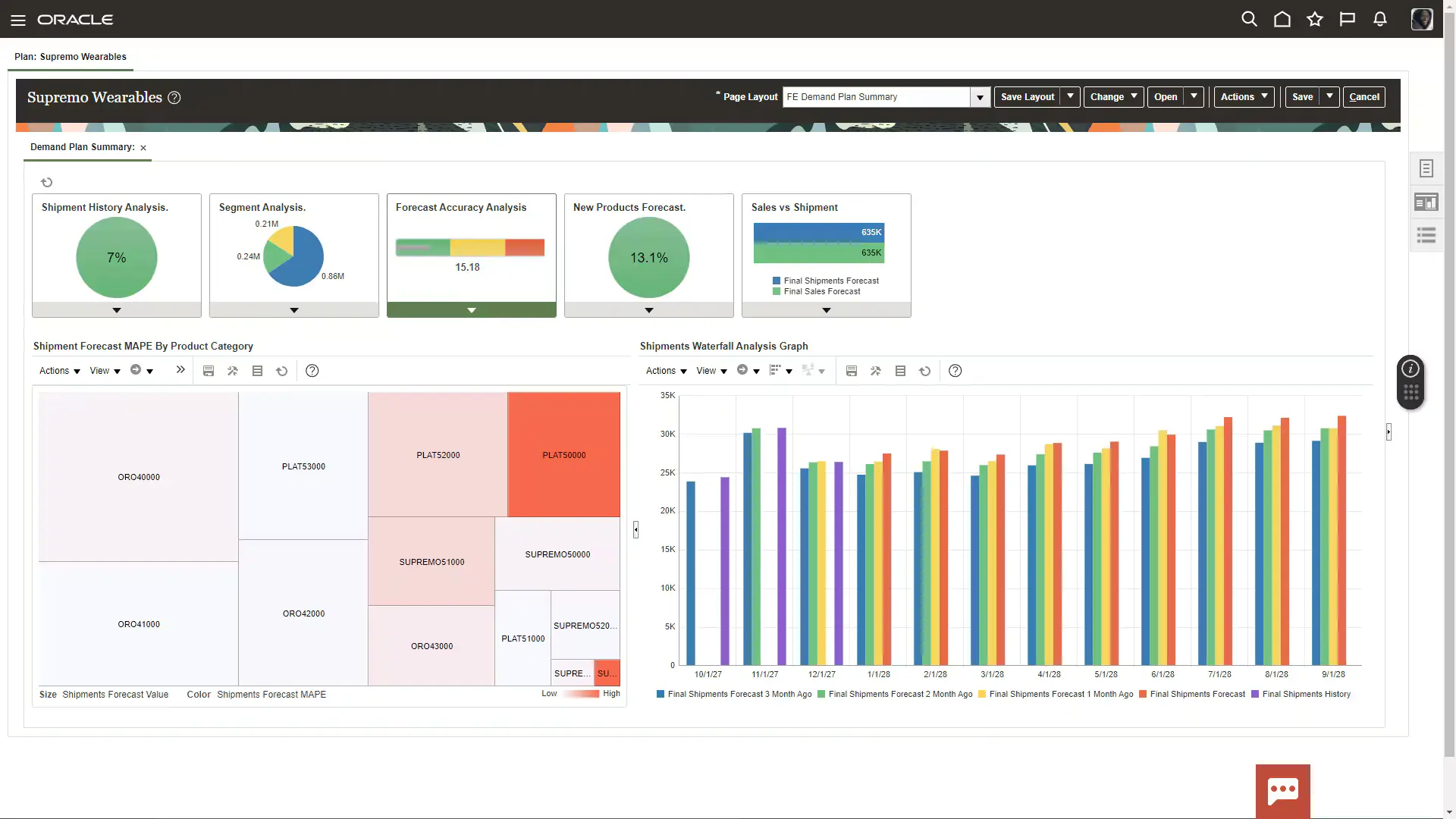
Oracle offers a robust cloud solution with end-to-end inventory visibility and control across global supply chains. It provides various inventory management tools like Oracle Fusion Cloud Inventory Management and Oracle NetSuite ERP, catering to diverse business needs in Singapore.
Here are the key features of the Oracle inventory forecast software:
- Excellent capacity for demand forecasting
- Inventory control capabilities
- Data-driven decision-making
| Pros | Cons |
|---|---|
|
|
3. Bee low stock alert & forecast
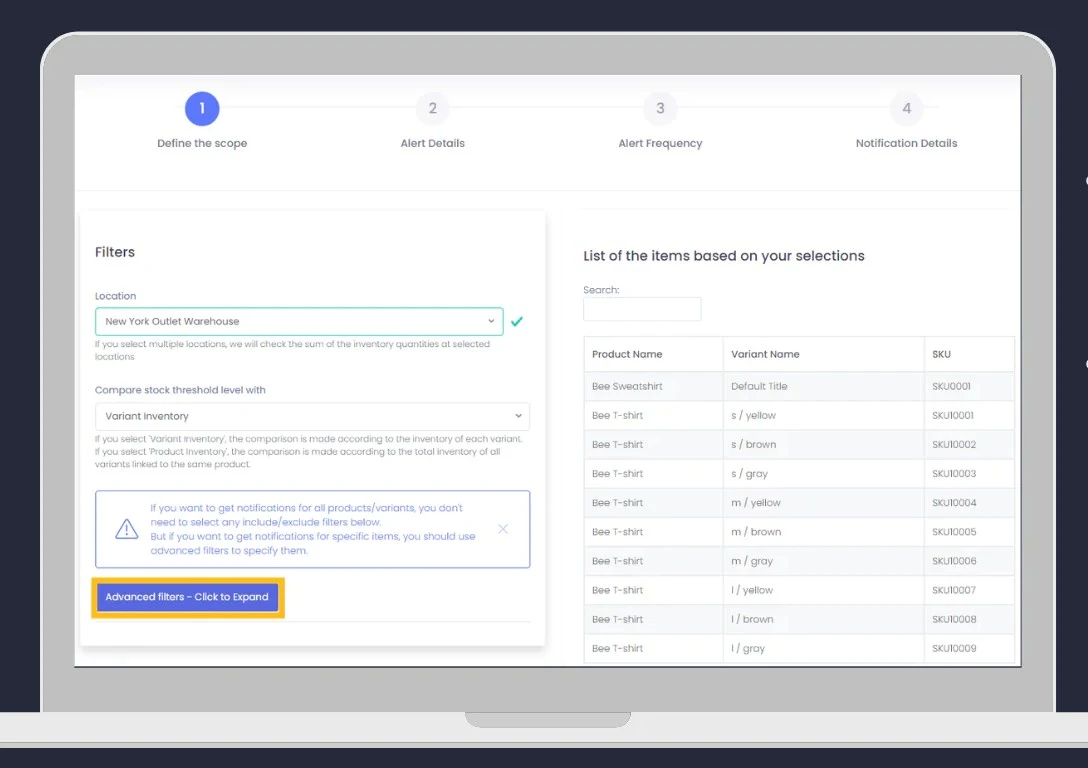
Bee Low Stock Alert & Forecast improves demand forecasting with sales velocity data and automated low stock alerts. It offers exportable inventory data, dynamic restock recommendations, and customized email alerts to help Singapore businesses manage inventory.
Here are the key features of the Bee low inventory forecast software:
- Set up automated alerts when your inventory forecast drops below a certain level
- Generate forecast reports for sales and inventories with export capabilities
- Consider the product’s sales velocity
| Pros | Cons |
|---|---|
|
|
4. Inventory Forecast Hero
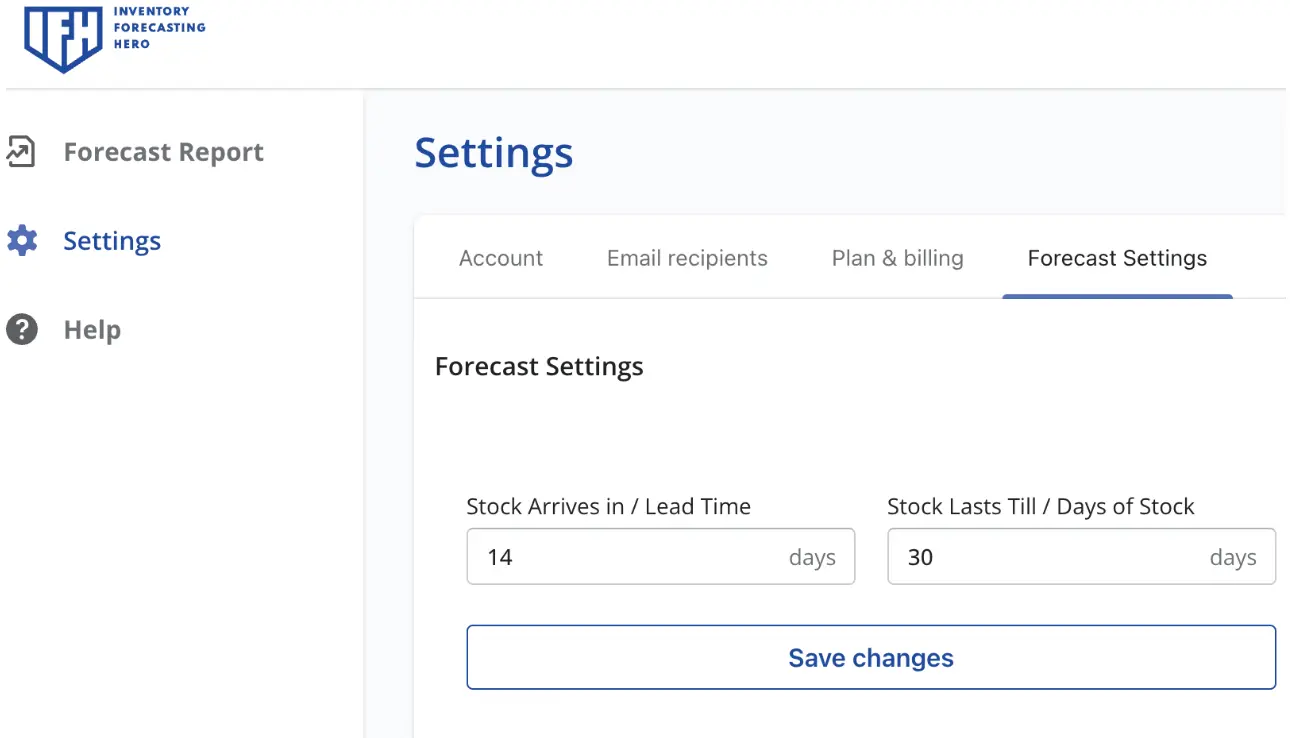
Inventory Forecasting Hero is an efficient tool designed to help small and mid-sized eCommerce businesses in Singapore reduce overstock and stockouts. It streamlines inventory management by automating demand forecasting and reorder planning, ensuring businesses maintain optimal stock levels.
Here are the key features of the Inventory Forecast Hero software:
- Simplify the forecasting process to save time and money
- Increase profits and reduce waste by consistently having accurate forecasts
- Obtain reorder quantities and deadlines for every product
| Pros | Cons |
|---|---|
|
|
5. Stockbot
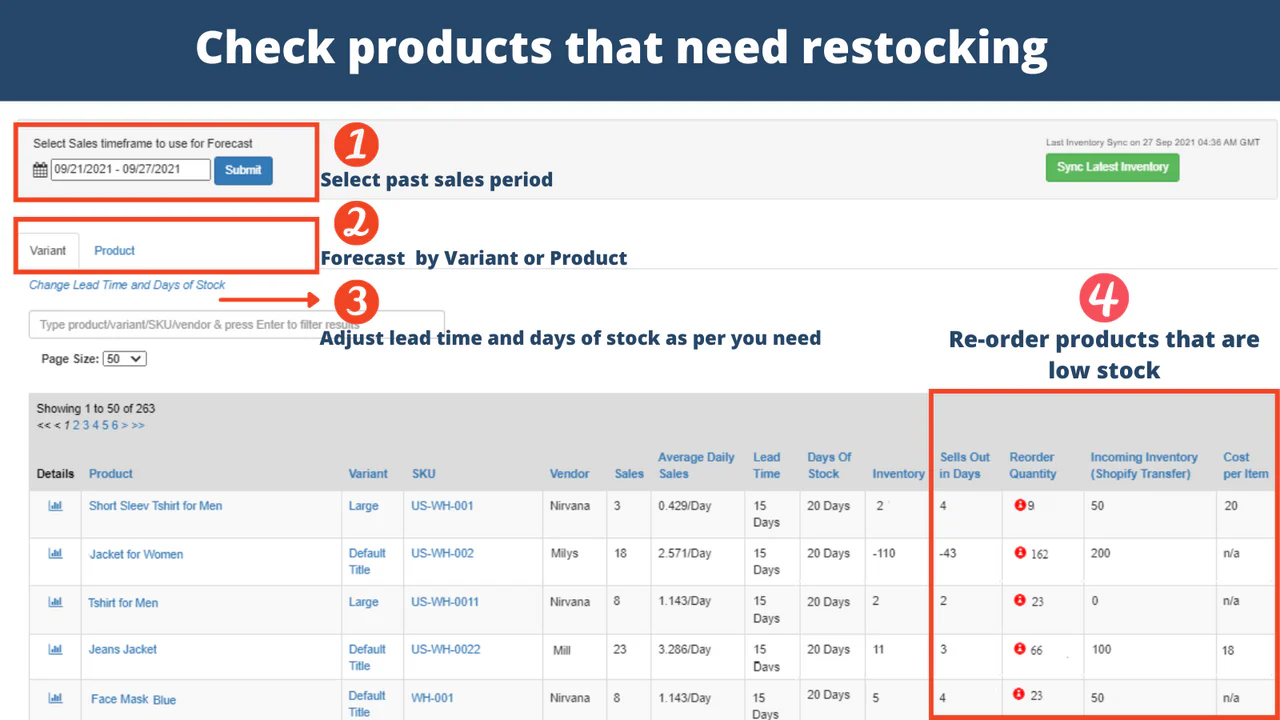
Stockbot is a user-friendly tool designed to help merchants manage their inventory efficiently through demand forecasting and low stock alerts. It offers features that help prevent stockouts and overstocking, ensuring that businesses in Singapore maintain optimal stock levels.
Here are the key features of the Stockbot inventory forecast software:
- Determine which products are slow-moving so you can decide whether to keep stocking them or change your inventory plan
- Predict replenishment quantities precisely to avoid dead stock and capital commitments in overstocking
- Steer clear of the headache of doing calculations by hand
| Pros | Cons |
|---|---|
|
|
6. Bucey AI
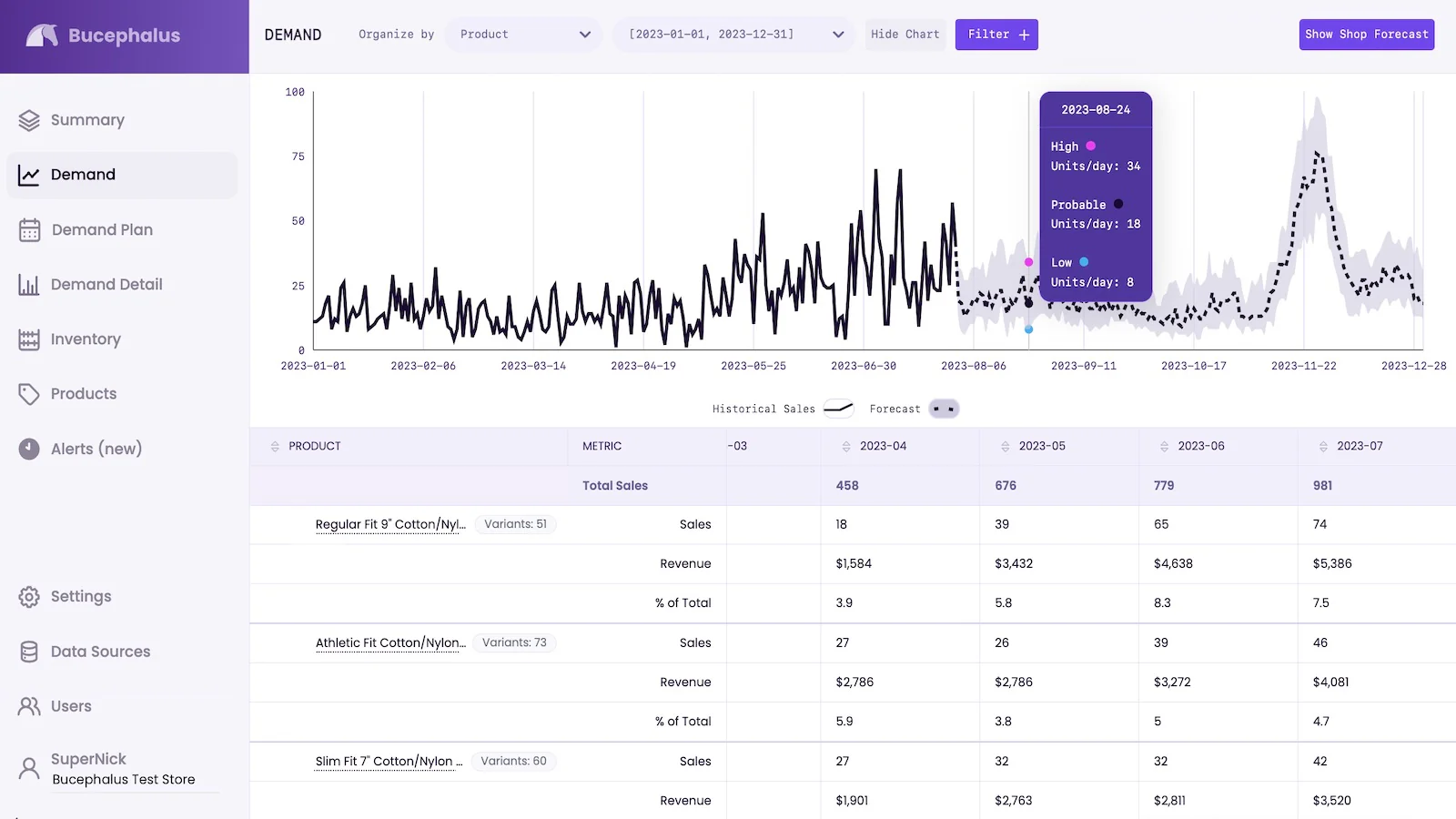
Bucey AI Inventory Forecast is an AI tool for Singaporean businesses to optimize inventory, forecast demand, and boost supply chain efficiency. It helps merchants and omnichannel companies improve cash flow and reduce stock issues.
Here are the key features of the Bucey AI inventory forecast software:
- Use data-driven sales and forecasts to make more educated stocking decisions
- Utilise capital optimisation to optimise safety stock and slow-moving items to free up capital
- Recognise and capitalise on new market trends before competitors do
| Pros | Cons |
|---|---|
|
|
7. Kinaxis Demand Planning Software
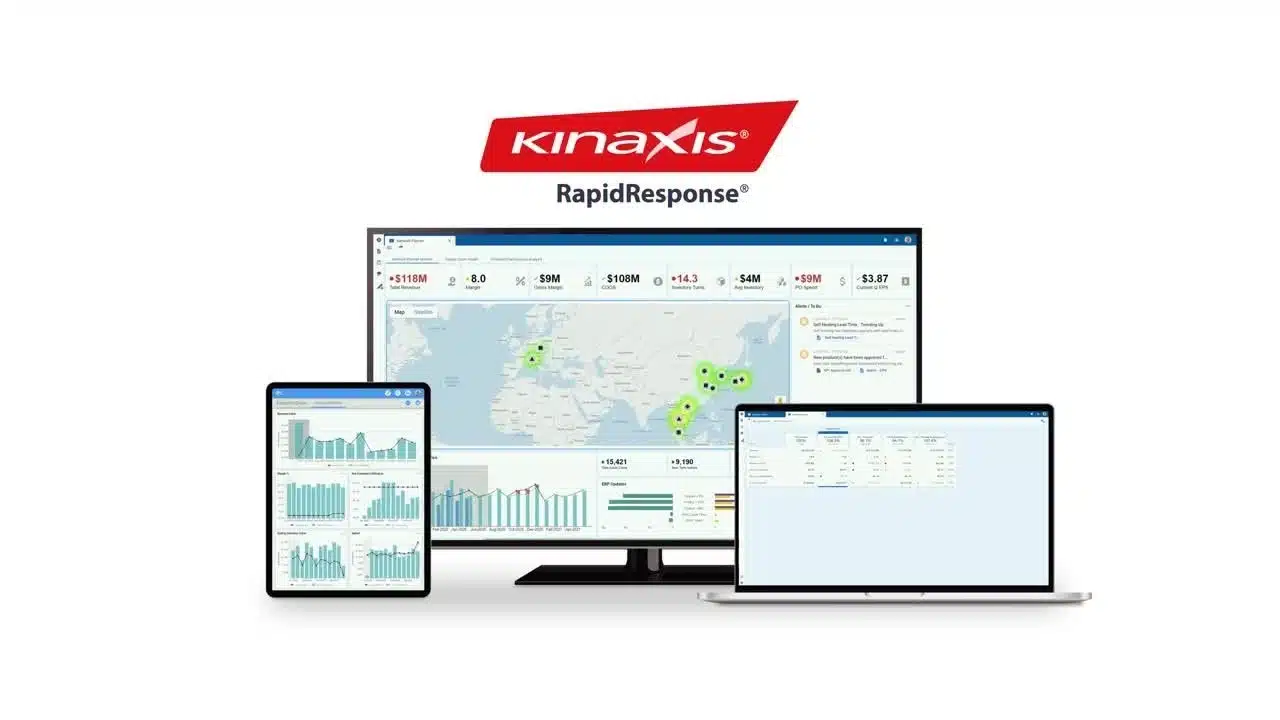
Kinaxis offers a comprehensive solution for demand forecasting, designed to reduce uncertainty and improve forecast accuracy. By integrating data from various stakeholders, including sales, marketing, finance, customers, and suppliers, it provides a centralized platform to enhance forecasting capabilities.
Here are the key features of the Kinaxis demand planning software
- Automates and optimizes forecasts using machine learning and demand sensing.
- Provides end-to-end supply chain management
- Analyzes supplier performance with advanced tools.
- Includes order tracking, sales and operations planning (S&OP), transportation, and returns management features.
| Pros | Cons |
|---|---|
|
|
How to Choose the Best Demand Forecasting Tool
When selecting the best inventory forecasting software, you must consider the features of the program as well as the unique requirements of your company. This recommended technique will assist you in making the best choice:
1. Define your business needs
Start by identifying the essential features your business needs, such as ERP integration, automated purchasing, demand forecasting, multi-location tracking, or AI-driven insights. Knowing your priorities makes it easier to choose a tool that fits your business operations.
2. Assess software capabilities and flexibility
Look for tools that offer real-time analytics, accurate forecasting, and adaptable models. Ensure the software can integrate with your existing systems and handle variables like supplier lead times, promotions, and seasonality.
3. Consider usability, support, and pricing
A user-friendly interface reduces training time and adoption challenges. Consider the provider’s customer service, training resources, and onboarding support. Finally, evaluate the pricing structure, ensuring it aligns with your budget without sacrificing essential features.
Conclusion
Choosing the right demand forecasting tool is essential for optimizing inventory and improving forecasting accuracy. By defining your needs, evaluating software features, and considering factors like usability and support, you can select the best solution for your business.
HashMicro’s Inventory Management Software offers advanced demand forecasting tools that help businesses in Singapore predict demand accurately. With features like real-time analytics, AI-powered forecasting, and customizable alerts, HashMicro streamlines your inventory process and boosts profitability.
Ready to optimize your inventory management? Book a free demo today and see how HashMicro’s demand forecasting tools can drive your business success.
FAQ About Demand Forecasting Tools
-
What are the key KPIs for demand forecasting?
Demand forecasting KPIs like accuracy, inventory turnover, stockout rate, and lead time measure forecast-to-actual demand alignment and optimize inventory.
-
What are the four methods of demand forecasting?
Qualitative forecasting, time series analysis, causal models, and machine learning are the four main demand forecasting methods. Machine learning, by analyzing large datasets, offers the most advanced insights for predicting future demand.
-
Which technique is commonly used for demand forecasting?
Time series analysis is a widely used technique, especially for businesses with seasonal sales patterns. It looks at historical data and trends to forecast future demand, making it ideal for predicting regular fluctuations in demand over time.
-
What are the challenges of demand forecasting?
Challenges in demand forecasting include inaccurate data, market shifts, and unpredictable consumer behavior, causing discrepancies. Businesses must use advanced tools and continuously update forecasts with real-time data.

































